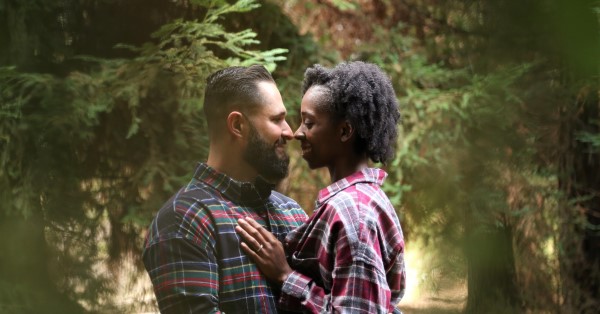“(Good leaders are) people who were good at … leading their lives from the perspective of their whole lives and (are) successful in all the different parts of their lives… They know how to be whole, which means to recognize and respect the fact that you’ve got not just work, not just family, not just friends and community, not just your private self. All four of these different parts matter.” Prof. Stew Friedman

Parents, would it surprise you to think of yourself as a leader? Most parents want to be successful at parenting, and leadership is a quality that can get you there. How can you be a good leader as a parent? Here is a great exercise to help you figure this out:
- Write your core values down.
- Write your parenting vision.
- Write down a description of a day 15 years from now.
- How and what will that day look like?
- What are you doing?
- Why are you doing it?
- What is the impact you are having?
- Define and create a collective parenting vision with your partner.
It is essential to have a conversation as a couple about these things. It can also be challenging. Especially if you find you have different values or define those values in different ways. Be sure to be gentle in the language you use. Use good listening skills with one another. Having a conversation like this can make all the difference in the world. It creates a roadmap for meaning in your parenting life. Roadmaps are vital to being able to lead with confidence to a destination that matters.
A Survival Kit for Your Relationship

A Survival Kit for Your Relationship
Our exclusive guide — Lockdown driving you crazy? Don’t strangle your partner, try this instead… is packed with information to help you and your partner come out of the pandemic with a stronger relationship.
“It’s natural to regress to old behavior. If you catch yourself regressing, give yourself a hug, appreciate your pain, shower yourself with enough love to calm down and relax, and then take your hand and lead yourself back to higher ground.” Beth Green in God’s Little Aphorisms: One-Liners from the Source

Ever heard the aphorism, “Under stress, we regress”? I love this observation since it explains what often happens when couples work to do things more healthily—for example, being more gentle with one another by avoiding using the Four Horsemen of the Apocalypse in your interactions. It can be challenging, but you are making progress. Then, wham! Some stress hits, and the old ways of interacting are suddenly back.
So now what? Keeping the aphorism in mind, make sure to give one another the benefit of the doubt. Talk about what happened and work to understand any stress that contributed. It is not a disaster when we regress; it just means we need to make repairs as needed. Dr. Gottman found that one of the differences between successful couples and those who were not was that successful couples made sure to repair when things got hairy. Here are a few good examples of ways to repair:
- Say, “I’m sorry.” Yup, this is an oldy, but a goodie. You may need a bit of footwork ahead of time, like talking about feelings and listening to one another to make sure each person feels understood, but it is well worth it.
- Take a break when one or both of you feel overwhelmed. When we are under stress, the likelihood of getting flooded (going into fight, flight or freeze) goes up. Having an understanding ahead of time about how to take a break as a couple, even in the middle of a discussion, can make a huge difference. Taking a break is a repair because, if you don’t take a break when you need one, it is very likely the interaction will not go well.
- One of my favorites is to have couples practice phrases like, “I feel criticized, can you rephrase that.” When one of the Four Horsemen comes through in the conversation, asking your partner to rephrase what was said can turn a conversation away from disaster. You can also stop yourself with, “That sounded critical, let me rephrase that,” if you realize it at the moment.
There are many other ways to make repairs in relationships, including using non-sarcastic humor. The important thing is to be gentle with one another when stress rolls around. Because, all together now, “Under stress, we regress.”
A Survival Kit for Your Relationship

A Survival Kit for Your Relationship
Our exclusive guide — Lockdown driving you crazy? Don’t strangle your partner, try this instead… is packed with information to help you and your partner come out of the pandemic with a stronger relationship.
“When we attune with others we allow our own internal state to shift, to come to resonate with the inner world of another.” Dr. Dan Siegel

Have you ever felt disconnected from your partner? It’s not a good feeling to have. What to do about it? Having ways of connecting and knowing how to do this is vital to having a healthy relationship. Knowing how to attune to your partner is the trick.
According to Collins English Dictionary, attunement is “an attuning or act of making harmonious.” Making harmonious sounds pretty fabulous in the context of your relationship, right? OK, here’s how to do it. There is a handy acronym that I use as a Gottman therapist, which gives the roadmap.
- Awareness of the situation at hand. You need to know how your partner is feeling.
- Tolerance of different viewpoints. It is imperative to understand that each of you has different perspectives that are very real for each of you and are likely different.
- Turning toward. Find ways of connecting with your partner. It can be as easy as asking, “What’s up?”
- Understanding. Ask clarifying questions to help you understand your partner’s inner world.
- Non-defensive listening. Take note of what your partner says without trying to come up with your responses as you listen. Be curious. Ask those clarifying questions.
- Empathy. Try to sense your partner’s emotions and imagine what they may be thinking or feeling. If you’ve been asking questions and listening non-defensively, you are well on your way to being able to empathize.
And that’s how to attune to one another! So if you ever start to feel disconnected, ATTUNE!
A Survival Kit for Your Relationship

A Survival Kit for Your Relationship
Our exclusive guide — Lockdown driving you crazy? Don’t strangle your partner, try this instead… is packed with information to help you and your partner come out of the pandemic with a stronger relationship.
“In any given moment, we have two options: to step forward into growth or step back into safety.” Abraham Maslow

Ever wondered what it would take to change your relationship for the better? Here are five things that could do just that. How do we know? Because these things are what we found looking at couples who were successful in their relationship.
- Have a check-in at the end of the day with your partner. Talk about important, exciting and interesting events of the day. Have a stress-reducing conversation as needed. Set aside 30 minutes for this conversation daily.
- Have a weekly date lasting at least three hours long. I know, I know, you’ve heard this before from me. It’s what successful relationships do. So it makes this list!
- Be sure to be turning towards one another throughout the day in positive ways. These moments put lots of deposits into your emotional bank account with your partner and create a buffer for tough or stressful moments.
- Here’s one for the male partners of the world. Research shows that if you bring up attention to low-level irritability within a few days of noticing it, you can significantly improve the happiness in your relationship. So bring it up gently and have a conversation of at least half an hour. Address anything that needs addressing if it relates to something in the relationship. Offer support in managing stress or some other issue if it is from something outside the relationship. Whatever is needed. Mostly, notice it and show that you are there for your partner by having that conversation.
- When you are apart from your partner (OK, nowadays that would be when you are in the other room), keep positive thoughts going about your partner.
That’s it. Do these five things, and your relationship will change for the better.
A Survival Kit for Your Relationship

A Survival Kit for Your Relationship
Our exclusive guide — Lockdown driving you crazy? Don’t strangle your partner, try this instead… is packed with information to help you and your partner come out of the pandemic with a stronger relationship.
“A little magic can take you a long way.” Roald Dahl

There is magic in relationships. I swear! Dr. Gottman discovered, from research on thousands of couples, that certain couples had what it took to succeed. One of the things he found was a magic ratio. The couples who were successful over the long haul had a ratio of five positive interactions for every negative one in their conflict discussions and a ratio of 20:1 in everyday interactions.
Wow! So think back to the last tiff you had with your sweety. Maybe it was about that thing that bothers them about the lines at the grocery stores these days. It doesn’t bother you, but you hear them talking about it again. Did you sigh grumpily? Or maybe make a sharp comment? What successful couples tend to do is balance these moments with a positive or neutralizing gesture. It could be gentle humor, eye contact, a listening queue, saying something supportive or physical contact (a shoulder bump, pat on the hand, etc.). In short, moments of appreciation and affection. Five times more of these kinds of interactions than the grumpy or sharp moments.
In everyday life, without conflict, the ratio in a successful relationship jumps to 20:1. These are just as important. The concept is the same, though. More positive than negative. So my advice? Take stock of how often you have positive interactions and compare them to the negative moments. If the ratio is off, look for moments to build positive interactions back into your relationship. For some ideas on how to do this, check out: How to Create Appreciation and Gratitude in Your Relationship, Date Night Blues and Rituals Are Not Just for Religion and Bedtime.
A Survival Kit for Your Relationship

A Survival Kit for Your Relationship
Our exclusive guide — Lockdown driving you crazy? Don’t strangle your partner, try this instead… is packed with information to help you and your partner come out of the pandemic with a stronger relationship.
Stay up to date with relationship tips and more
Plus our exclusive guide Things your mama never told you about talking dirty…






